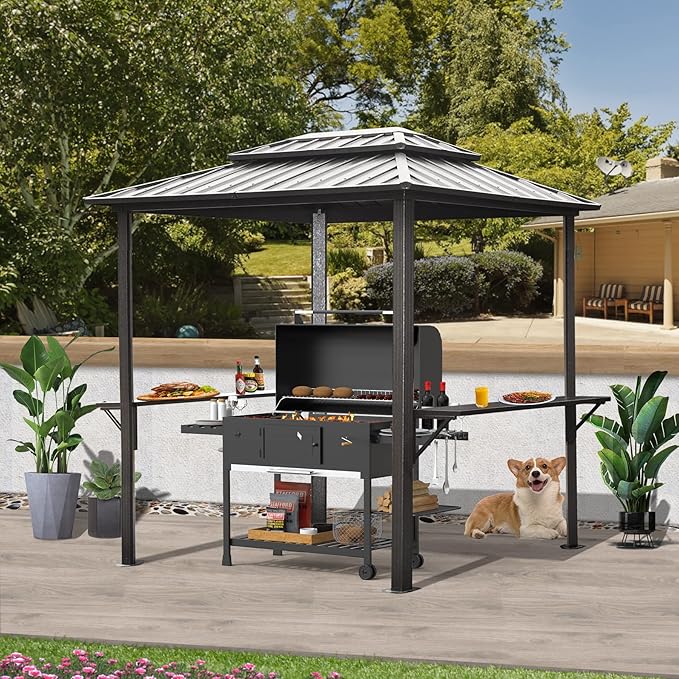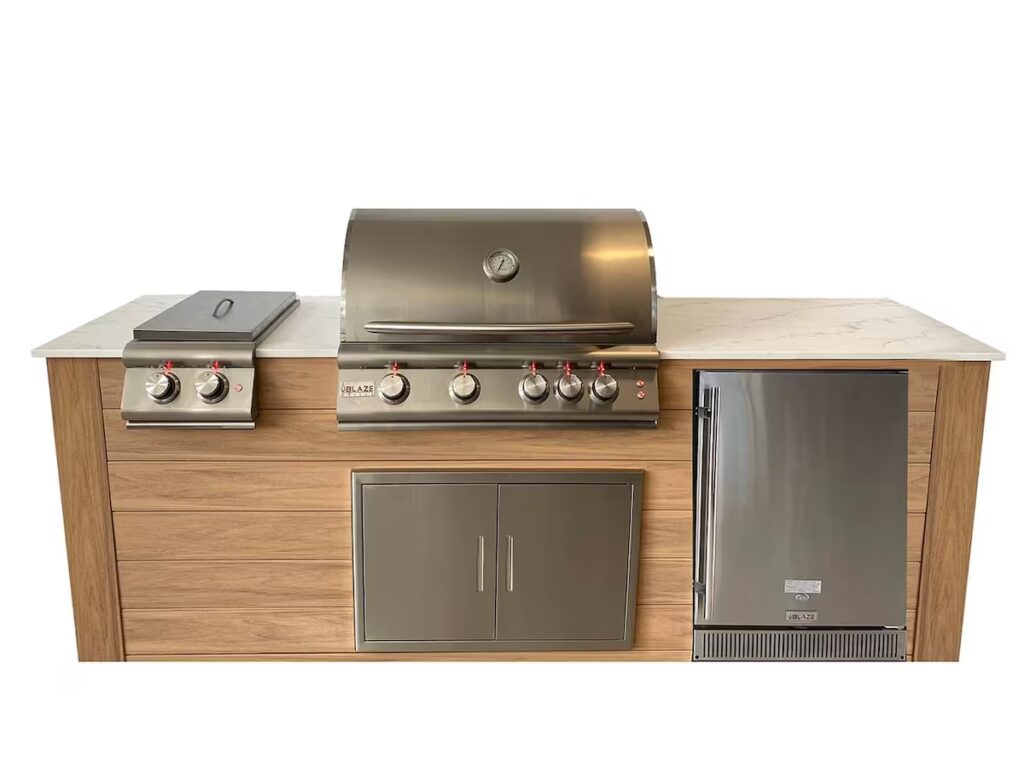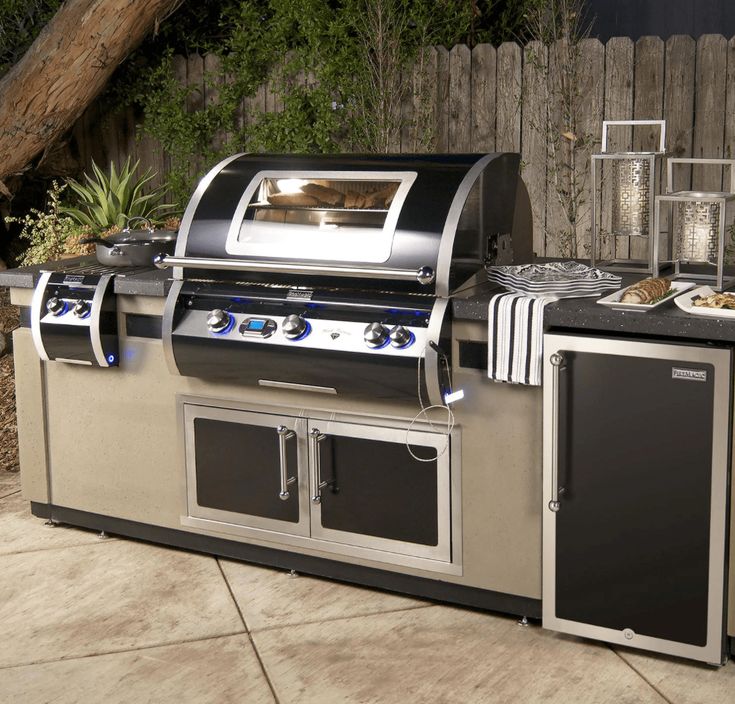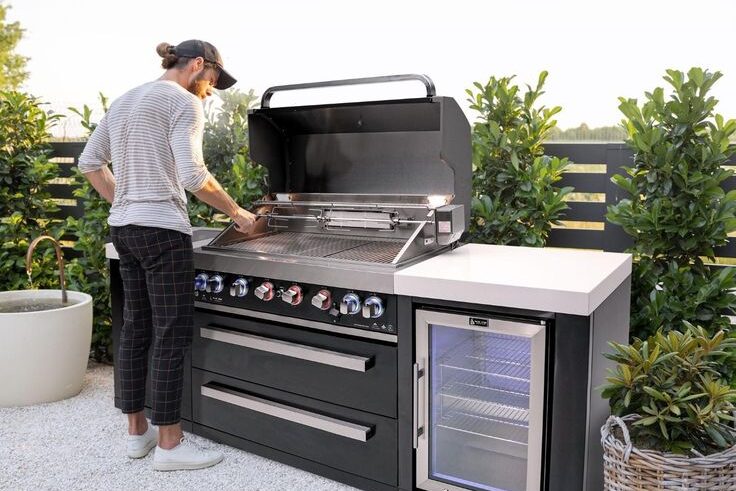Your grill fires up perfectly, but then—flicker, pop—it dies again. Nothing ruins an outdoor meal faster than a flame that won’t stay steady. Whether you’re prepping steaks or veggies, a weak or unstable flame can turn your BBQ into a frustrating guessing game.
A gas grill that won’t stay lit often has one or more simple issues: low fuel, blocked burners, a faulty regulator, or weather interference. Most of these problems can be fixed quickly without needing professional help.
When your grill keeps shutting off, don’t panic. Understanding how gas flow, ignition, and air balance work can help you spot the cause fast. Let’s look at nine common fixes that’ll keep your flame strong and steady.

Why does my gas grill keep going out while cooking?
A flame that dies mid-cook is more common than you’d think. It might happen because of weak gas flow, dirt buildup, or simple air balance issues.
In most cases, your grill keeps going out because gas flow is disrupted by a regulator issue, wind, or clogging in the burner ports. Sometimes, it’s as simple as the lid being closed too soon after ignition.
Understanding the problem
When your grill shuts off, check if the flame goes out slowly or instantly. A slow fade usually means a pressure drop or blockage. A sudden pop-out might point to wind or moisture hitting the flame.
Key troubleshooting steps
| Issue | Likely Cause | Quick Fix |
|---|---|---|
| Flame dies slowly | Regulator stuck | Reset the regulator |
| Flame pops off fast | Wind interference | Turn grill away from wind |
| Uneven flames | Clogged ports | Clean burners with a wire brush |
| Weak flame | Low fuel | Refill propane or check valve |
Could low propane levels cause the flame to die?
Yes. Running out of gas is the simplest reason your flame won’t hold.
A low propane tank or restricted gas flow will cause weak, flickering flames that fade as you cook.
To check your fuel level, pour warm water down the side of your propane tank and feel where it turns cool. The cool line shows where the gas ends. A nearly empty tank means it’s time for a refill.
How to avoid low-gas issues
- Always keep a backup propane tank ready.
- Store tanks upright and in a ventilated area.
- Open the gas valve slowly to prevent regulator lock.
Pro Tip
Grills can lose pressure when tanks are too cold. On chilly days, store propane indoors (safely) before connecting it outside.

Are there gas leaks or pressure issues in the line?
Leaks are a hidden enemy of consistent grilling. Even small leaks can disrupt gas flow and make your flame flicker.
A small leak or kink in the gas line will cause inconsistent pressure, making the grill flame unstable or go out.
How to test for leaks
You don’t need fancy tools—just soapy water. Mix dish soap with water and brush it on the hose and fittings. Turn on the gas slightly. If you see bubbles forming, that’s a leak. Turn off the gas right away and replace the faulty part.
Common pressure problems
| Symptom | Cause | Solution |
|---|---|---|
| Weak flame | Hose kinked | Straighten the hose |
| No flame | Regulator blocked | Reset or replace regulator |
| Uneven burn | Small leak | Replace hose |
Never use open flames to test leaks. If unsure, call a qualified technician.

Is the regulator stuck or limiting gas flow?
The regulator is the brain of your gas system. When it malfunctions, it can choke the fuel supply.
A stuck regulator or triggered safety bypass will reduce gas pressure, causing weak or unstable flames.
Resetting your regulator
- Turn off all burners and close the propane tank valve.
- Disconnect the regulator from the tank.
- Wait five minutes to release trapped pressure.
- Reconnect the regulator and open the valve slowly.
You should hear a faint hiss as the pressure equalizes. Now, try lighting your grill again.
Tip
If the flame still fades, your regulator may be defective. Regulators typically last around five years, so replacing them regularly helps maintain performance.
Are the burner ports clogged with grease or debris?
Clogged burners block gas from flowing evenly, creating weak or uneven flames.
Dirty burners or blocked ports restrict gas flow, leading to flames that go out during cooking.
How to clean them
Turn off the gas and remove the grates. Use a soft brush or paper clip to clear out the tiny holes on the burner tubes. You can also soak the burners in warm water with vinegar for deep cleaning.
Cleaning schedule
| Frequency | Task |
|---|---|
| After every 3–5 uses | Brush off surface debris |
| Monthly | Deep clean burners |
| Yearly | Inspect for rust or corrosion |
A clean grill is a steady grill. Always let burners dry before reconnecting the gas.

Is the igniter or spark weak after lighting?
Sometimes, the flame goes out because the spark system doesn’t keep up.
A weak or damaged igniter won’t sustain the flame long enough to stabilize the gas flow.
Check your ignition system
Remove the grate and inspect the igniter tip. It should be free of rust and grease. If you use a battery-powered igniter, replace the battery and test for the “click” sound.
If you hear clicks but see no spark, the wire may be loose or disconnected.
Igniter troubleshooting tips
- Use rubbing alcohol to clean the electrode tip.
- Tighten or reconnect any loose wires.
- Replace the igniter module if it’s corroded or burnt out.
Could wind or rain be blowing out the flame?
Nature is often the quiet culprit. Wind or light rain can easily extinguish small flames.
Strong wind or moisture can blow out your gas flame, especially when grilling outdoors without shelter.
How to shield your grill
- Turn your grill away from the wind.
- Use a wind guard or place it in a covered patio.
- Avoid grilling in heavy rain or strong drafts.
Even humidity can make ignition harder. Always keep your grill covered when not in use.
| Weather | Effect | Preventive Step |
|---|---|---|
| Wind | Blows out flame | Shield or reposition grill |
| Rain | Moisture kills spark | Use a grill cover |
| Cold | Slows gas pressure | Pre-warm propane tank |
Is the lid position affecting airflow or combustion?
Your lid plays a big role in airflow control.
A closed lid during ignition traps gas, causing pressure imbalance that can kill the flame.
When to open or close
- Keep the lid open when lighting.
- Once the flame is steady, close it slowly to retain heat.
- Never light with the lid closed—it can cause a flashback or explosion risk.
Quick safety tip
If you smell gas before lighting, wait at least five minutes before trying again. That gives the gas time to dissipate.
Should you clean or replace the regulator and hoses?
If all else fails, your hardware might be at fault.
Aging hoses and regulators lose efficiency, leading to weak or unstable gas output.
What to inspect
- Hoses: Check for cracks, stiffness, or discoloration.
- Regulator: Ensure the vent hole isn’t clogged with dust or grease.
- Fittings: Make sure all are tight and corrosion-free.
Replacing old parts can restore your grill’s consistency. Keep a spare hose-regulator set for emergencies.
Conclusion
A gas grill that won’t stay lit can ruin a great meal, but it’s rarely a sign of major damage. Most problems—like low gas, clogged burners, or a faulty regulator—have easy solutions. Regular cleaning and simple checks before cooking can prevent most flame issues.
Keep your propane tank full, your connections tight, and your burners clean. With a bit of maintenance, your grill will stay lit, your food will cook evenly, and your guests will stay happy.
A steady flame isn’t luck—it’s care and routine.

FAQ
Q: Why won’t my gas grill stay lit when I close the lid?
If you light the grill with the lid closed, pressure can build under the lid and choke the flame out. Open the lid while lighting, then close once the flame is stable.
Q: Can a strong wind really cause the grill flame to go out?
Yes. Wind can knock the flame off the burner or cool the flame too much so it can’t stay lit. Position the grill away from direct gusts or use a wind shield.
Q: Does a dirty burner really affect how long the flame stays lit?
Absolutely. Burners with clogged ports or debris restrict gas flow and make the flame weak or unstable. Regular cleaning helps maintain continuous flame.
Q: Could the regulator be the reason the flame won’t stay lit even though the igniter clicks?
Yes. A malfunctioning regulator may allow ignition but not sustain enough gas pressure, causing the flame to die. Replacing the regulator often fixes this.
Q: Why does the flame fade slowly instead of going out instantly?
A slow fade usually means reduced fuel flow or pressure—often from low propane, partial blockage, or a regulator issue—rather than a sudden interruption like wind.
Q: Is the propane tank maybe fine but still causing the flame to go out?
Yes. Though the tank may have gas, internal pressure can drop or the valve can restrict flow. Use the “warm water trick” on the tank to check level and inspect for flow issues.
Q: Does weather, besides wind, affect whether my grill stays lit?
It does. High humidity, rain, or very cold temperatures reduce vaporization of propane or damp burner parts, making the flame more likely to go out.
Q: What happens if the igniter works but the flame won’t stay lit?
If you hear a click and see a spark but the flame dies quickly, then the issue usually lies with burn quality, gas supply, or burner condition—not the igniter itself.
